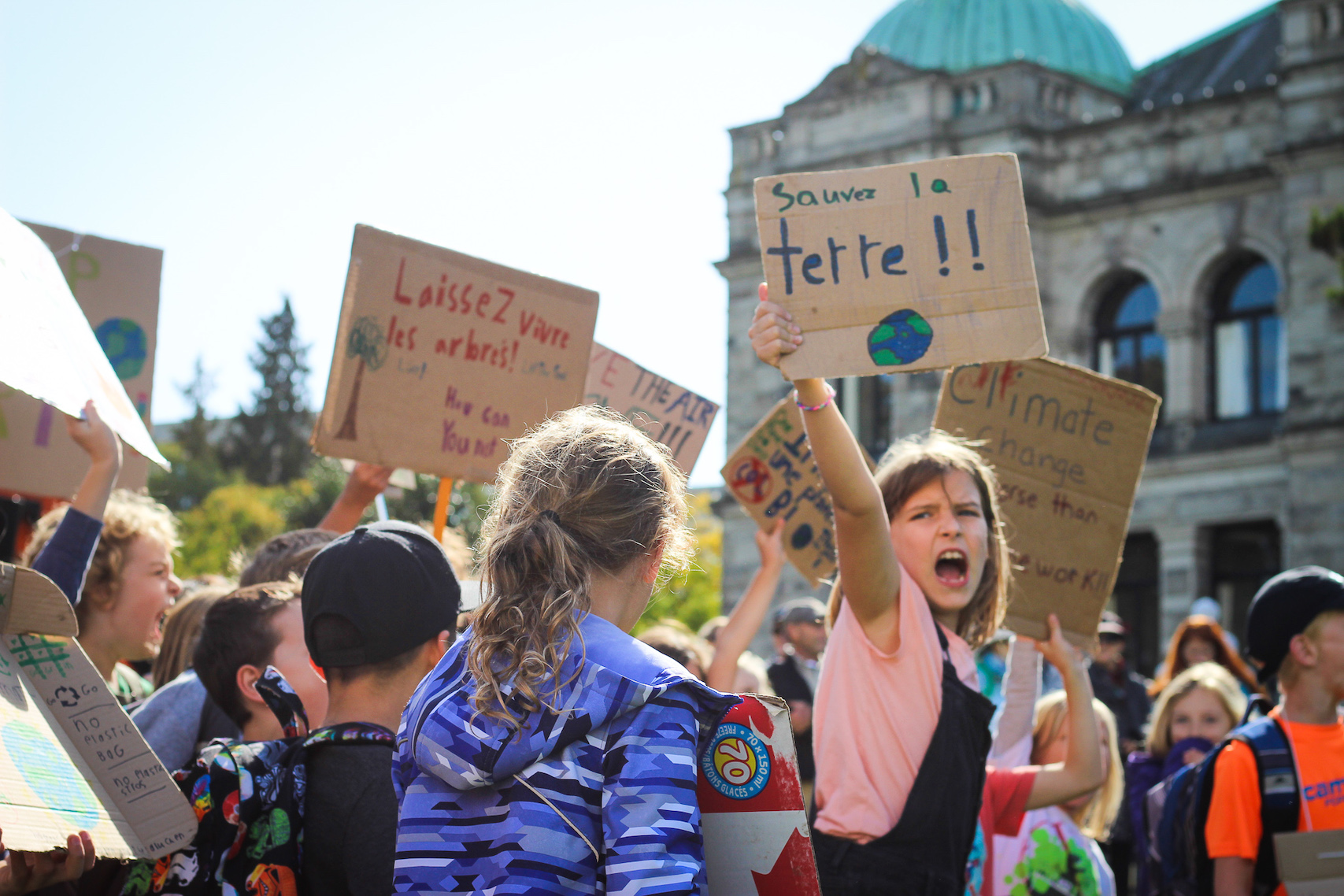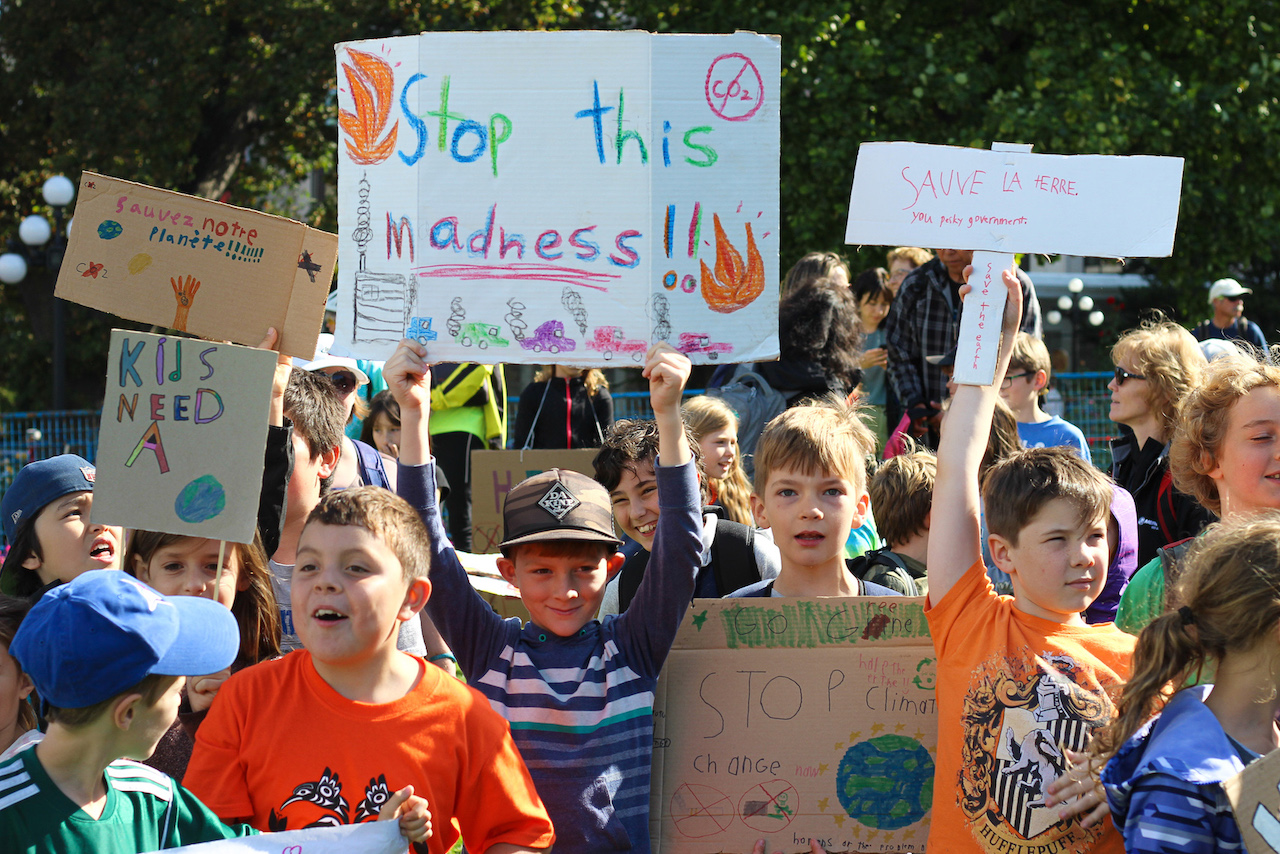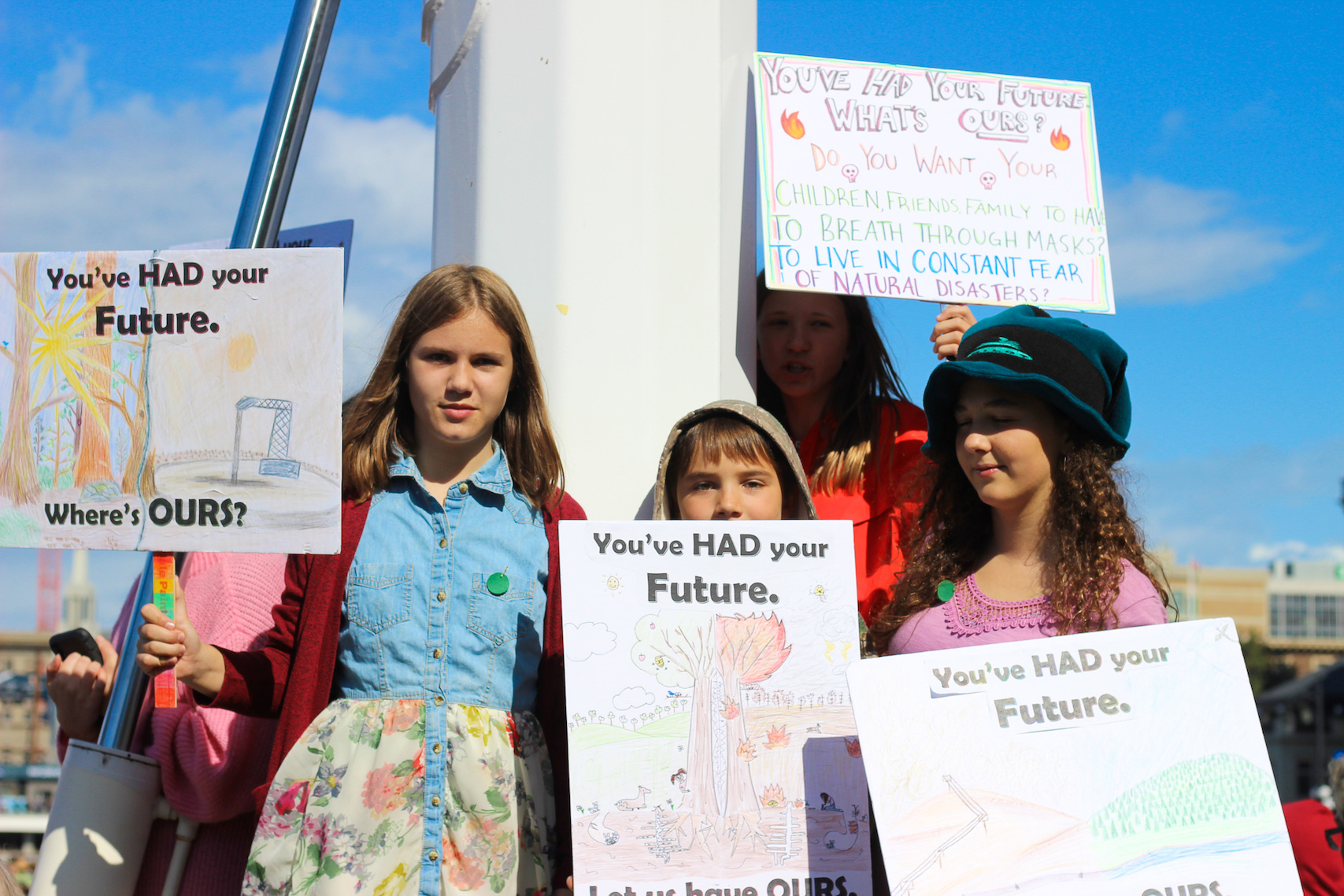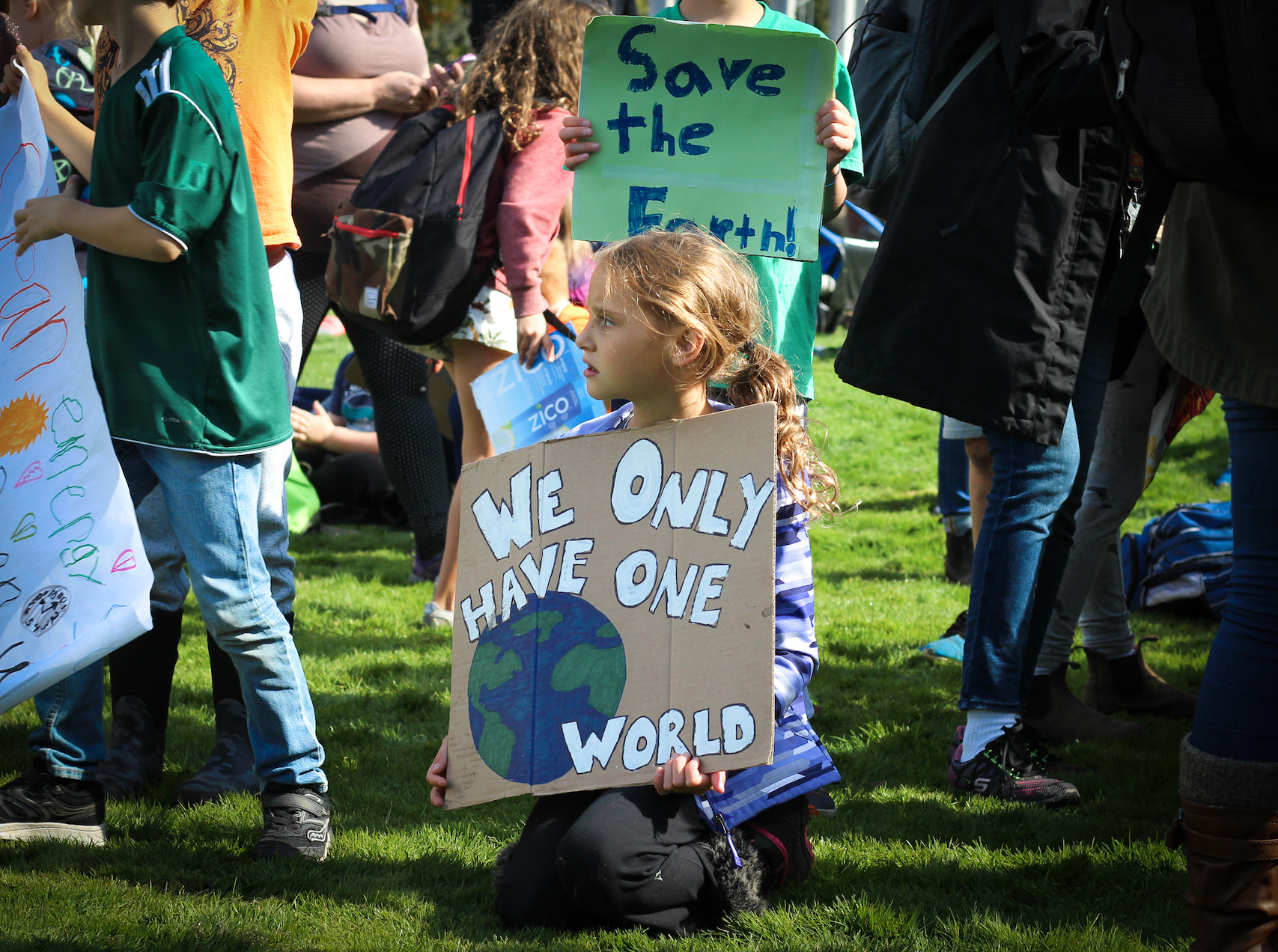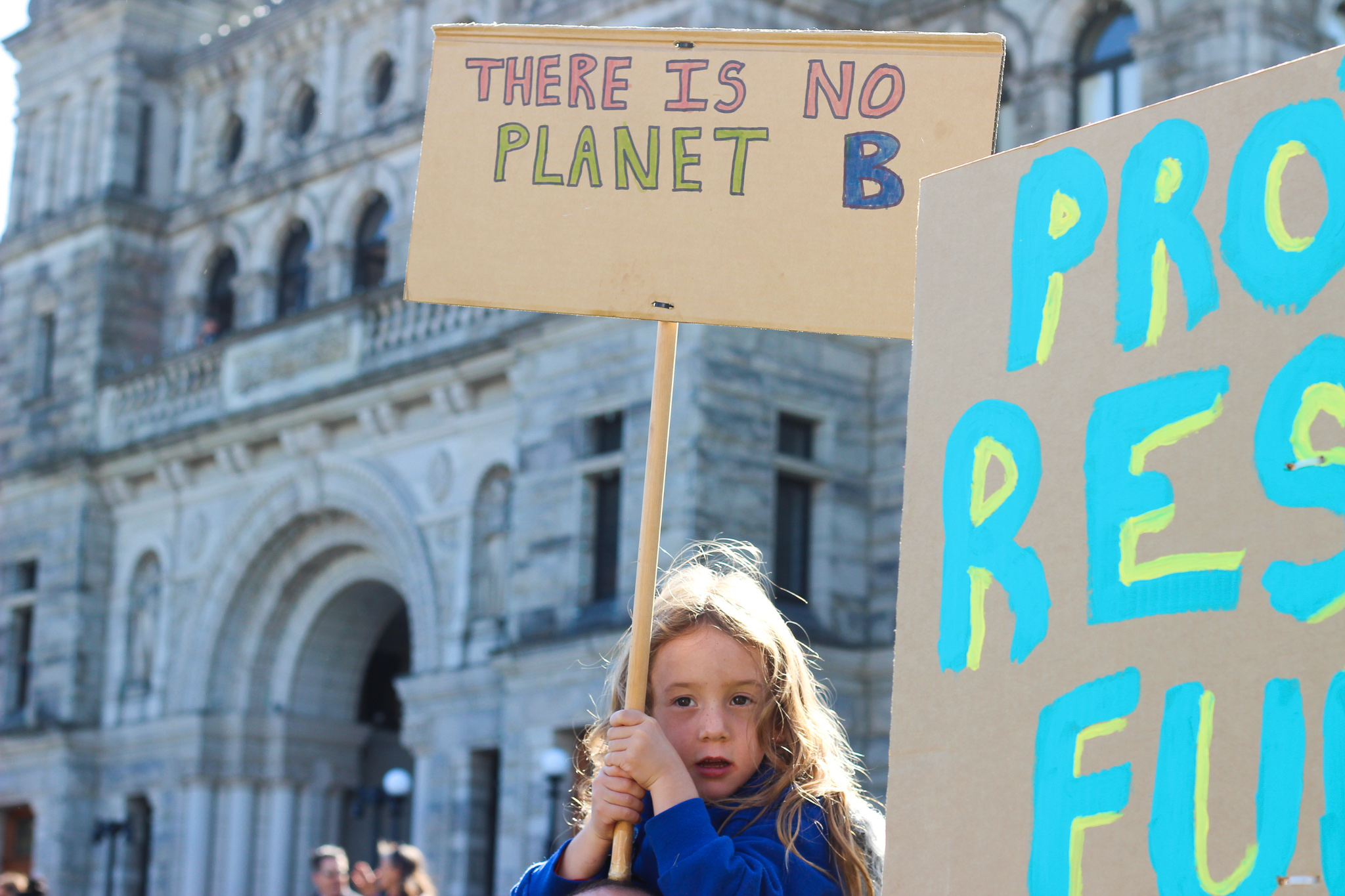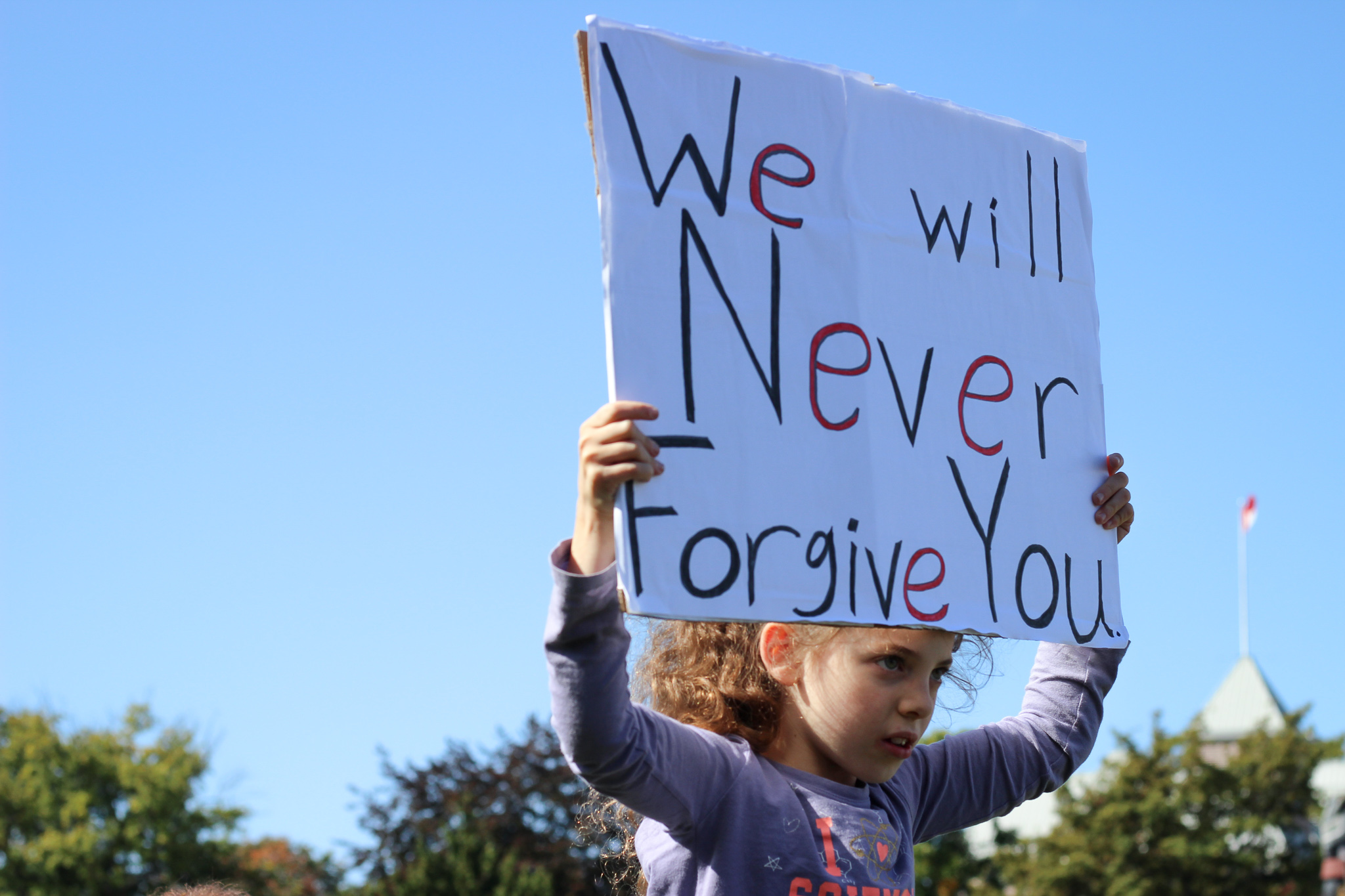Divest UVic, Our Time, and Climate Strike Canada on the future of our hot planet
Climate change may seem like a big, lofty issue, but these local youth are fearlessly facing it head-on. Whether by leading advocacy groups on campus or leaving school to strike downtown, each of them have a different view of how we can help the climate from our own backyards. Behind the thousands of people striking for climate action are a few diligent and determined young people who have worked for months to make events like this a success and to push politicians to listen to climate science.
Before the strike last week, I spoke with three youth engaged in environmental activism around Victoria: Tahya Weiss-Gibbons, Emma-Jane Burian, and Juliet Watts.
Tahya Weiss-Gibbons
Weiss-Gibbons is a fourth-year physics and computer science student at UVic and an organizer with Our Time Victoria.
The Martlet: Can you briefly tell me what Our Time Victoria does?
Weiss-Gibbons: Our Time is a national movement pushing for a Green New Deal for Canada. The Green New Deal is a comprehensive way to push for that kind of change and in the time-scale we need. In Canada, [the Green New Deal] is not a policy platform but a statement of principles around which many policies could be formed. We’ve asked politicians to work on this, which would be like 100 per cent reduction of emissions by 2050, falling in line with the IPCC [Intergovernmental Panel on Climate Change] report on climate change, respecting Indigenous rights, and not leaving any workers behind.
What inspires you to keep doing this work?
It’s really heartening to have that community of people who all care around you and to see people getting engaged locally. When we’re talking about climate change, it’s such a big, global issue that I don’t know what we’re going to see here or what successes we will see here. I don’t try to measure success on the big things. It’s the little things, like if new people come to our events, and building a sense of community around yourself.
What’s the one most important thing people can do?
Vote. And more than that, know what issues are out there and what’s really important. Don’t get caught up in politics as much with that because we have to make changes so quickly and on such a massive scale that government is an effective way to do that — that means voting for actual candidates and putting the people in place that can make the change we need.
Emma-Jane Burian
Emma-Jane Burian is a 17-year-old Grade 12 student and organizer for Climate Strike Victoria with Climate Strike Canada and Our Earth Our Future.
The Martlet: When did you start becoming aware of these issues?
Burian: My whole life I’ve had a connection to activism and trying to make the world better and more sustainable. I used to live on Burnaby Mountain, so I was always surrounded by activism. My parents were really big advocates for helping with homelessness issues in our community. I was always aware of global issues, and then I became more aware of [them] when I was 13 or 14.
What’s the one most important thing people can do?
For people who are of voting age, I think the most important thing to do is to vote and to keep your children’s future in mind when you do that. But also, I think it’s really important that you get educated and that you learn about these things from many different perspectives — read the IPCC and the Canada Changing Climate report and become educated about the issues that are happening and try to figure out how you see a place for you to fit into helping.
What have you learned from these experiences?
The biggest thing that I’ve learned is that getting people together, especially youth, is really empowering when we all have this shared vision for what we want to see in the future. I never expected to feel so empowering, or to feel like we are making changes, but it’s really exciting when we get all these people and we can really brainstorm what do we want to see and how we can get there.
Juliet Watts
Watts is a political science student at UVic and heads the Divest UVic movement.
Can you briefly describe what you do in terms of environmental activism?
Watts: What I focus on is the Divest UVic campaign. I got involved with that in January of this year after it had fallen dormant. The reason I’m interested in divestment is that UVic has branded themselves as a very sustainable institution but we now realize that that is a lot of greenwashing and that they have nearly $40 million invested in fossil fuels.
What inspires you to keep doing this work?
What keeps me going is, quite honestly, that I want to be a parent and that I’m really nervous about what the world will look like for future generations. Divestment really gets at the root of addressing what’s wrong with the fossil fuel industry, which is the legitimacy that society gives it through funding and including subsidies and backing it through government funding, bailouts, and investments. Instead of dwelling on the guilt, which is what I did for several years, taking this kind of action works to address it.
What is the most important thing people can do?
I think collective action is the most powerful thing that we can do. I think community is a form of resistance — what we need is massive, nonviolent direct action in order to address the super-projects [such as the Trans Mountain Pipeline] that are going through unceded Indigenous territories.
Neoliberalism really puts the onus on the individual and by following the direction of corporations and institutions like our own to change the cup and use a reusable mug — those are steps that are worth taking, but the only way that we are really going to fully address the crisis is if we come together and participate in collective movements.
What have you learned personally from your activism?
I’ve learned that I really thrive off of feeling like I’ve made a difference and that I’ve brought people together to make a difference. My favourite quote is that “action is the antidote to despair.” I had a really hard time in my first year of environmental studies feeling extremely discouraged about all the issues I was learning about. I didn’t fully understand the importance of solidarity and standing with other movements, especially Indigenous resurgence and Indigenous sovereignty, until about a year ago.



